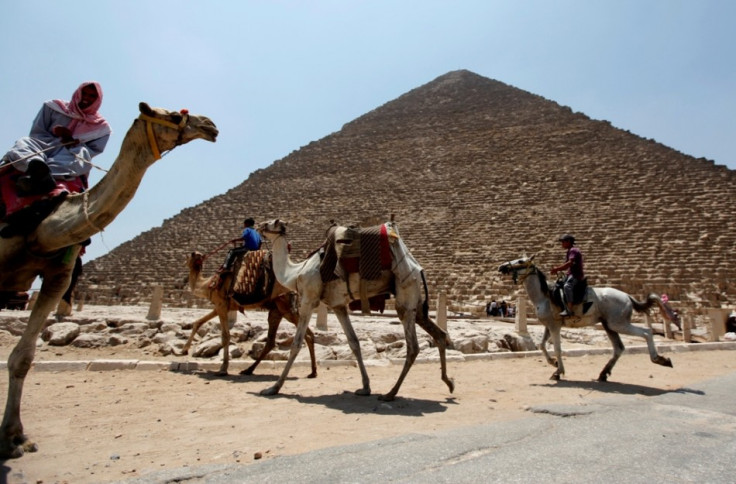Morsi Clashes Threaten Egypt's Tourism Industry

Egypt's key tourism industry has been badly damaged by the country's ongoing civil unrest, which has caused foreign governments to advise citizens to cancel trips and warn visitors already there to remain in their hotels.
Several countries have issued travel advisories for tourists.
Russia has ordered travel agents to stop selling tourist packages to Egypt. More than 50,000 Russians are already on holiday in Egypt, and almost the same number again are booked to go there in the coming months.
Britain has advised nationals visiting Egypt's Red Sea resort of Hurghada to remain in their hotels, after a death was reported there.
"Hurghada police advised tourists to remain in hotel grounds," a statement from the Foreign Office said.
"We advise you to follow their advice. You are strongly advised to avoid all demonstrations and large gatherings."
There are about 40,000 Britons in Red Sea resorts such as Hurghada and Sharm el-Sheikh, according to the British travel association ABTA.
Tour operator Thomas Cook has cancelled excursions from the Red Sea resorts to Cairo, Luxor, Moses Mountain and Saint Catherine's monastery.
Italy has also advised its citizens to remain in hotels and resorts. The country has an estimated 19,000 citizens in the North African state. France, Germany and Spain have taken similar measures.
Economic Losses
Since the military coup in July, Egypt's tourism industry has faced losses estimated at $720m (£461m, €540m), Wlhami El-Zayat, the head of Egypt's Federation of Chambers of Tourism, said in an interview with Saudi Arabia's Al-Watan newspaper.
Occupancy rates at hotels have plummeted as the number of tourists declined by about 37% in July.
Egypt has attracted around six million tourists since the beginning of 2013. The total revenue from tourism this year is estimated at $4.7bn, according to El-Zayat.
Arab Spring and Tourism
Egypt is known for its millennia-old monuments such as the Pyramids and Great Sphinx at Giza and the Abu Simbel temples, and tourism makes a significant contribution to the economy.
In 2010, the year before the revolution, Egypt attracted a record 14.7 million visitors. That plunged by nearly a third to around 10 million in 2011, the year of the revolution, but rose to 11.5 million in 2012.
A slump in tourism has a knock-on effect on related sectors such as travel, accommodation, car rental, air transportation, health and wellbeing, and tourist attractions.
Retreat of Multinational Firms
In a further setback to the economy, many major multinational companies, banks and the stock exchange have ceased operations as a result of the unrest.
General Motors, Toyota, Royal Dutch Shell and Electrolux are among the major foreign firms that have stopped operating. Many multinational companies said they are experiencing disruptions due to security lockdowns and shorter hours.
© Copyright IBTimes 2024. All rights reserved.






